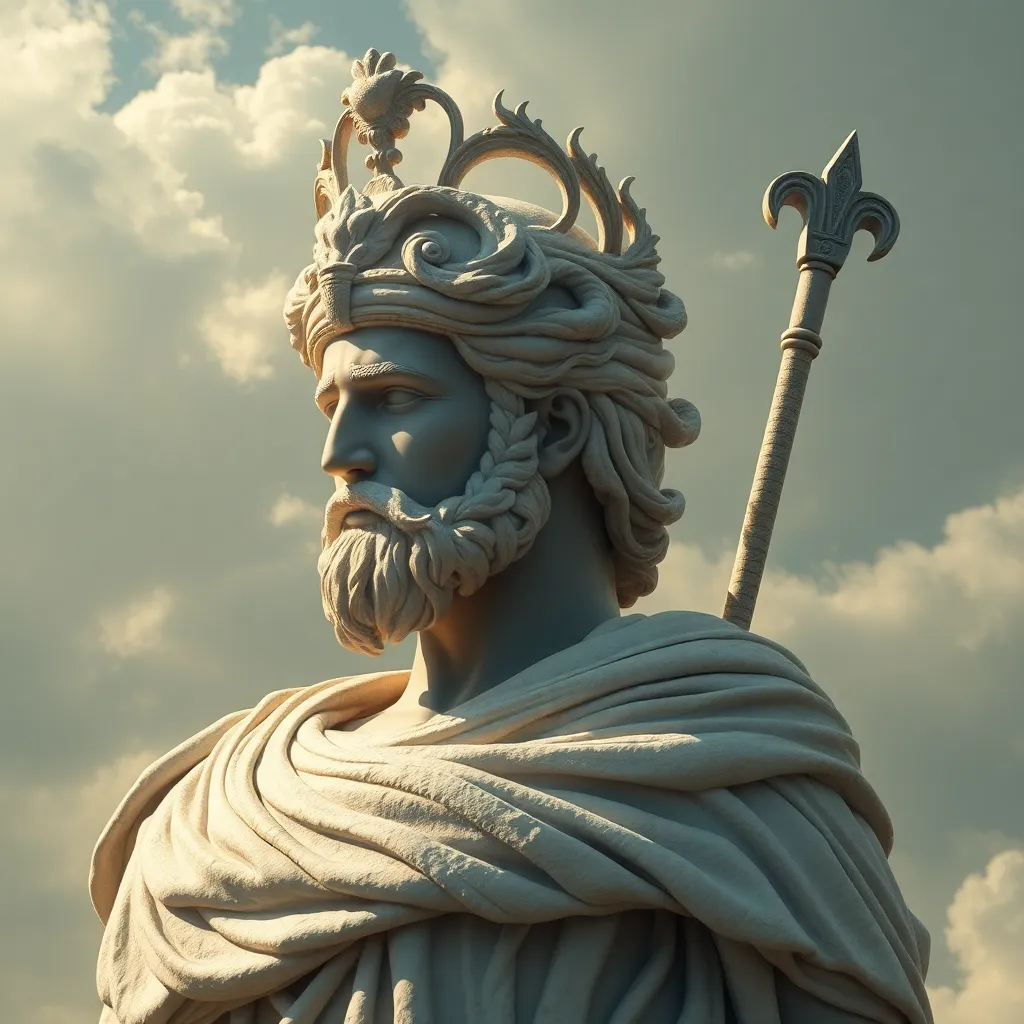The Psychological Aspects of Perseus’ Journey: A Hero’s Mindset
I. Introduction
Perseus, one of the most celebrated heroes of Greek mythology, is renowned for his legendary feats, including the slaying of the Gorgon Medusa and the rescue of Andromeda. His adventures not only highlight his physical prowess but also delve deep into the psychological dimensions of heroism. Understanding the mindset of Perseus offers richer insights into the nature of courage, fear, and personal growth in the face of adversity.
This article aims to explore the psychological aspects of Perseus’ journey, shedding light on the internal struggles and transformations that define a hero’s mindset. By examining key moments in his quest, we can better appreciate the complexities and nuances of heroism.
II. The Hero’s Call: Acceptance of the Quest
The hero’s call to adventure is a pivotal moment in any mythological narrative. For Perseus, this call came with the daunting task of obtaining the head of Medusa, a creature whose gaze could turn men to stone. The significance of this quest lies not only in its perilous nature but also in its reflection of Perseus’ acceptance of his destiny.
- Significance of the Call: The call represents a turning point, where the hero must choose to embrace his fate or retreat into obscurity.
- Psychological Implications: Accepting one’s fate can lead to a sense of purpose and direction, fostering resilience and determination.
Initially, Perseus exhibited a mix of trepidation and resolve. His motivations were shaped by a desire to prove himself, to gain honor and recognition. This duality of fear and ambition would be a recurring theme throughout his journey.
III. The Role of Fear and Courage
Fear is a natural response to danger, and for Perseus, facing Medusa embodied this existential dread. The psychological interplay between fear and courage is a vital aspect of his narrative.
- Understanding Fear: Fear serves as a protective mechanism, alerting individuals to potential threats.
- Confrontation with Fear: Perseus’ quest demanded he confront the embodiment of terror itself—Medusa.
However, it was through this confrontation that Perseus transformed his fear into courage. By utilizing tools provided by the gods, such as Athena’s shield and Hermes’ winged sandals, he learned to harness his fear, turning it into a driving force for action.
IV. Mentorship and Guidance: The Influence of the Gods
The gods play a crucial role in shaping Perseus’ journey, providing not only physical tools but also psychological support. This mentorship highlights the importance of guidance in overcoming challenges.
- Role of Deities: Athena and Hermes offered Perseus the wisdom and resources necessary to succeed.
- Psychological Impact: Mentorship fosters confidence and motivation, essential components of the hero’s mindset.
Perseus’ interactions with Athena, who provided strategic guidance, and Hermes, who aided in his travel, illustrate the value of collaboration and support in the journey of a hero. Their divine interventions not only equipped him physically but also bolstered his psychological resilience.
V. The Power of Perseverance: Overcoming Obstacles
The path of a hero is fraught with challenges, and Perseus faced numerous obstacles on his quest. Each challenge served as a test of his perseverance and mental fortitude.
- Key Challenges: From battling sea monsters to navigating treacherous landscapes, Perseus’ journey was marked by significant trials.
- Psychology of Resilience: Resilience involves the ability to bounce back from setbacks, maintaining focus on one’s goals.
To maintain his focus, Perseus employed several strategies, including goal-setting, visualization of success, and reliance on the support from his divine mentors. These techniques exemplify the psychological tools heroes can utilize to overcome adversity.
VI. Identity and Self-Discovery
As Perseus progressed through his journey, he underwent a profound evolution in his self-identity. This transformation is intricately tied to the psychological aspects of heroism and personal growth.
- Evolution of Self-Identity: Each victory and setback contributed to Perseus’ understanding of himself as a hero.
- Psychological Growth: The journey fosters personal development, challenging preconceived notions of one’s abilities.
Perseus’ achievements, particularly the defeat of Medusa and the rescue of Andromeda, significantly impacted his self-perception. He transitioned from a young man seeking validation to a confident hero embodying strength and courage.
VII. The Role of Community and Relationships
No hero’s journey is undertaken in isolation. The relationships Perseus forged with allies and loved ones played a vital role in his success and psychological well-being.
- Importance of Allies: Companionship provides emotional support, enhancing a hero’s capability to face challenges.
- Psychological Benefits: Social support is crucial for maintaining mental health, especially in high-stress situations.
Perseus’ relationships, particularly with his mother Danaë and later with Andromeda, highlight the significance of community. These connections provided him with motivation and a sense of responsibility, further fueling his heroic journey.
VIII. Conclusion
In exploring the psychological aspects of Perseus’ journey, we uncover the intricate layers that define heroism. From the acceptance of his quest to the transformative power of fear, courage, mentorship, and relationships, each element contributes to a deeper understanding of what it means to be a hero.
The broader implications of Perseus’ mindset extend beyond mythology, resonating with universal themes of courage and self-discovery in our own lives. As we reflect on his journey, we find inspiration in the timeless narrative of overcoming adversity, embracing our fears, and growing through our experiences.




